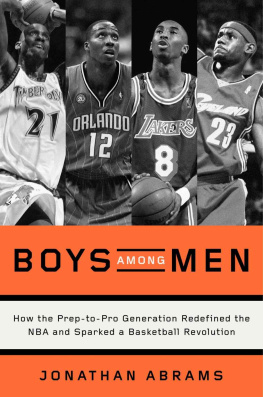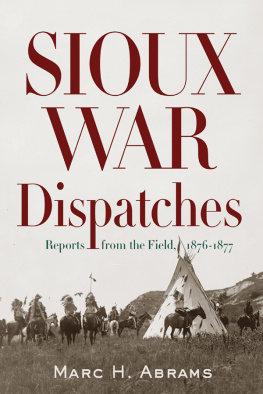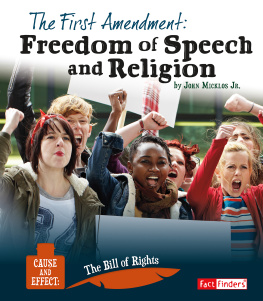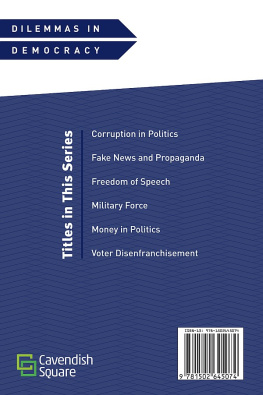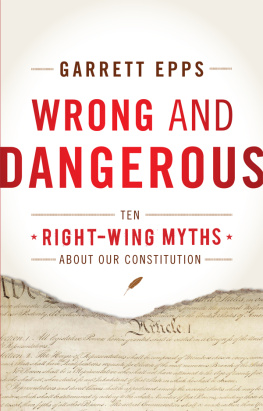The Soul of the First Amendment
The Soul of
the First
Amendment
Floyd Abrams

Published with assistance from the foundation established in memory of Philip Hamilton McMillan of the Class of 1894, Yale College.
Copyright 2017 by Floyd Abrams.
All rights reserved.
This book may not be reproduced, in whole or in part, including illustrations, in any form (beyond that copying permitted by Sections 107 and 108 of the US Copyright Law and except by reviewers for the public press), without written permission from the publishers.
Yale University Press books may be purchased in quantity for educa- tional, business, or promotional use. For information, please e-mail (UK office).
Set in Janson Roman type by Integrated Publishing Solutions.
Printed in the United States of America.
Library of Congress Control Number: 2016950165
ISBN 978-0-300-19088-5 (hardcover : alk. paper)
A catalogue record for this book is available from the British Library.
This paper meets the requirements of ANSI/NISO Z39.48-1992 (Permanence of Paper).
10987654321
For Efrat
The very reason for the First Amendment is to make the people of the country free to think, speak, write and worship as they wish, not as the Government commands.
JUSTICE HUGO BLACK
Contents
Acknowledgments
This book is one of ruminations about certain aspects of American constitutional law that have long been of special interest to methe uniqueness of American First Amendmentrooted law protecting the freedom of speech and of the press; the degree to which democratic nationsCanada and the United States, for examplethat share so many values to such an extraordinary degree nonetheless veer in different directions when the protection of speech is involved; and the difficult, sometimes painful decision-making process that American and other journalists and commentators engage in (or that I think they should engage in) about what to say when law imposes few barriers to their saying just about anything they choose.
While Ive thought about such matters for some time, the process of preparing even a short book has required the substantial assistance and often the forbearance of many people. I start with my dear wife of fifty-three years, Efrat, who encouraged me to write the book even if it led to my absence from our home for more than a few weekends. I thank my associate Celia Belmonte for all her assistance in finding certain materials and in analyzing them all. I thank my partner Susan Buckley and Professor Catherine J. Ross for reading the manuscript and offering their reactions to it. All views in the book and, of course, all errors are mine alone.
I thank my inestimable assistant Denise ONeill for protecting me from much of the turmoil of day-to-day life and encouraging me to complete the task of authorship. I thank my agent Karen Gantz for her counsel, her dedication to the books creation, and her continuing encouragement in its drafting. I thank Marcy Lovitch for typing much of the book on the many Sundays I spent in my office writing it. And I thank my partners and associates at Cahill Gordon & Reindel for all the conversations and discussions I have had with them throughout the years about the topic of the book and just about everything else.
I am delighted that Yale University Press is publishing the book and want to offer particular thanks to Steve Wasserman, who oversaw the book from its earliest days of conception.
Introduction
In 1976, my wife and I and our two children traveled across the Atlantic Ocean to England on the QE2. Among the many amenities offered on the ship were current movies, one of which was All the Presidents Men, which showed how Washington Post reporters Bob Woodward and Carl Bernstein exposed the Watergate scandal that led to the resignation of President Richard Nixon. The movie received a number of Oscars, including one for William Goldman, the pictures screenwriter. In addition to writing such unforgettable lines as Follow the money, Goldman included occasional curse words uttered by the journalists and others. The movie received a PG rating in the United States and, because of its use of profanity, a more restrictive one in Britain.
My son, Dan, was then ten and wanted to see the movie. When he tried to enter the ships theater, he was stopped by an officious English steward and told that because of his age and the movies British rating, he could not do so. Dan argued for a while and then, as he turned away from the guard, muttered, Thats why we had a revolution. Thats why we have a First Amendment. When he returned to our cabin and told me the story, I beamed.
Of course, as my son learned long before he entered Columbia Law School, the First Amendment applies only to the government and not to private entities such as the Cunard Line. But he was on to something, and that was the spirit of the First Amendment, its anticensorial soul.
This essay is about that soulfreedom of speechwhy it matters and, as a result, how different American society is from other Western democratic states. The First Amendment is a mere forty-five words: Congress shall make no law respecting an establishment of religion, or prohibiting the free exercise thereof; or abridging the freedom of speech or of the press; or the right of the people peaceably to assemble, and to petition the Government for a redress of grievances. Thats it. Because of the adoption of postCivil War amendments to the Constitution and subsequent judicial interpretation of them, the First Amendment also applies to the states. And it applies as well to the president and other federal officials and to other governmental entitiescities, towns, and municipalities and their employees.
This modest essay focuses on the nine words that bar the government from abridging the freedom of speech or of the press, and on the interpretation of that language by the Supreme Court. I do so largely by comparing American law and practice on this topic to the laws governing free speech in other democratic nations. I do this not to bestow some sort of First Amendment valentine on the United States but to explore the nature of the differences in approach in this contentious arena. After all, American First Amendment law, former United States solicitor general and associate justice of the Supreme Judicial Court of Massachusetts Charles Fried has rightly said, is the most libertarian and speech protective of any liberal democratic regime. As such, its consequences and implications are profound.
The exceptionalism of the United States in the protections it offers to freedom of expression does not mean that other democratic nations do not respect, honor, and generally seek to protect it; it does mean that American law does so more often, more intensely, and more controversially than is true elsewhere. Nor, to put it another way, does it mean that the United States cares less than other democratic nations do about a bevy of competing interests such as the vice of discrimination, the need for equality, the harm that defamation can do to personal reputation, the significance of personal privacy, and the need to safeguard national security. It does mean, however, that although American law seeks to protect those interests, it does so only after weighing, with far greater concern than occurs elsewhere, the dangers of government interference with and control over free expression.
The uniquely high level of American protection for free expression does not necessarily mean that American society is better served in all respects. I think that is generally so, but one could hardly argue that Canada, whose approach to such matters is in many ways similar to that of democratic Europe, suffers under a yoke of repression as a result.
Next page


